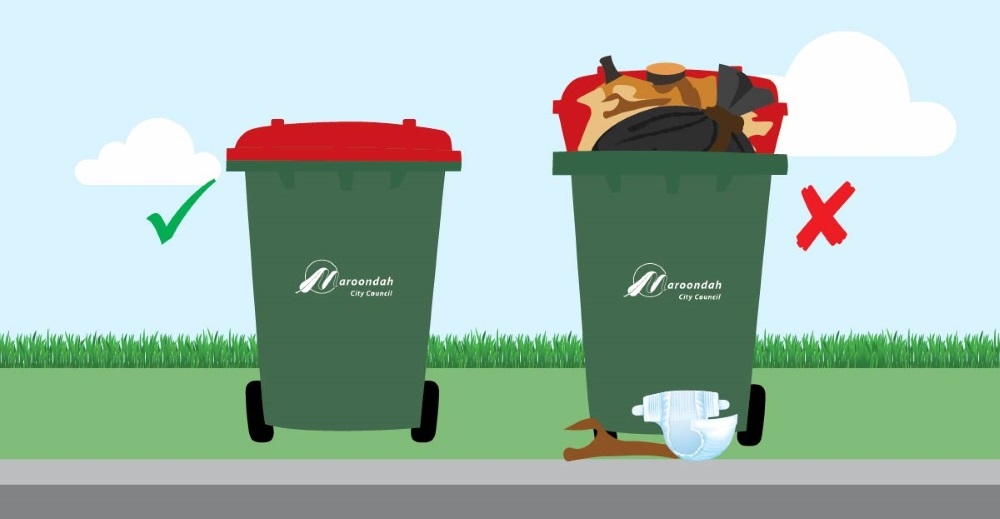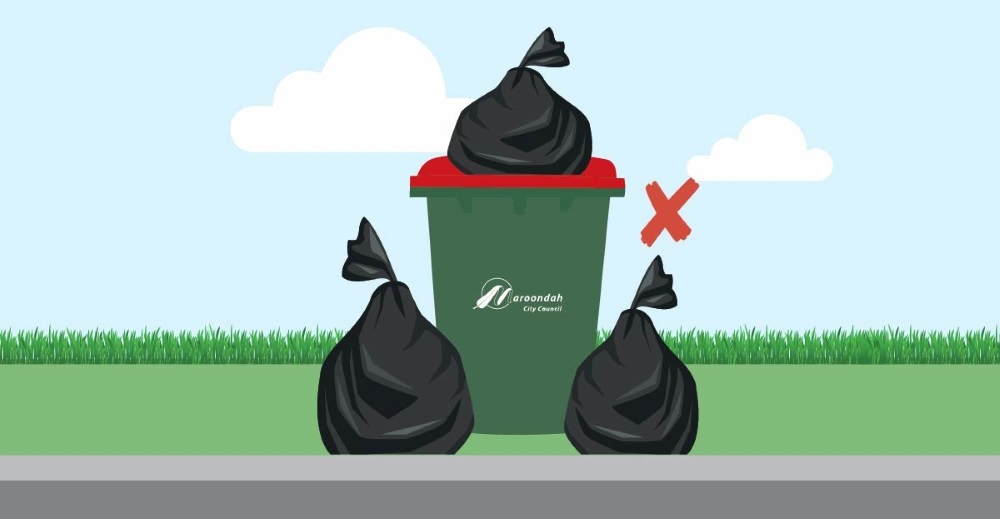Waste collection trucks have a mechanical lifting arm, so bins need to be positioned to ensure the mechanical arm can reach and lift. Please follow these instructions to ensure your waste can be collected.
1. Put bin out by 6am
Bins should be on the kerb by 6am on the day of collection (or the night before).
2. Do not overfill bin
Do not overfill your bin, as this can lead to spillage and litter problems. Please keep all bin lids closed.
Keep your bin under 40kg or it may not be collected. How will you know? It will be very difficult to move.

3. Keep waste inside bin
Do not place any excess waste on top of or beside your bin.

4. Wheels away from road
Place your bins near the kerb or roadside with the wheels away from the road, nearest to the house or property.
5. Give your bin space
Do not place bins in front of one another.

Place your bin 30cm (about 1 foot) away from additional bins to allow space for the mechanical arm to access each bin.
Place your bins at least 1m away from trees, parked cars and all poles, such as light poles or electrical poles. This space is needed for safety reasons.

6. Keep bins out of truck turning zone
Place bins outside the truck turning zone – this applies to dead end streets and courts. If you are able to, please group bins by lid colour.


7. Multi unit developments
If you live in a multi-unit development, please help our collection drivers by grouping your bins by lid colour, remembering to leave at least 30cm between each bin to allow space for the mechanical arm of the truck to access each bin.

8. Remove bin from kerb
Please remove bin from kerb within one day of collection.